Sports Personality of the Year: surprising result
Why did McIlroy finish second despite being overwhelming favourite?
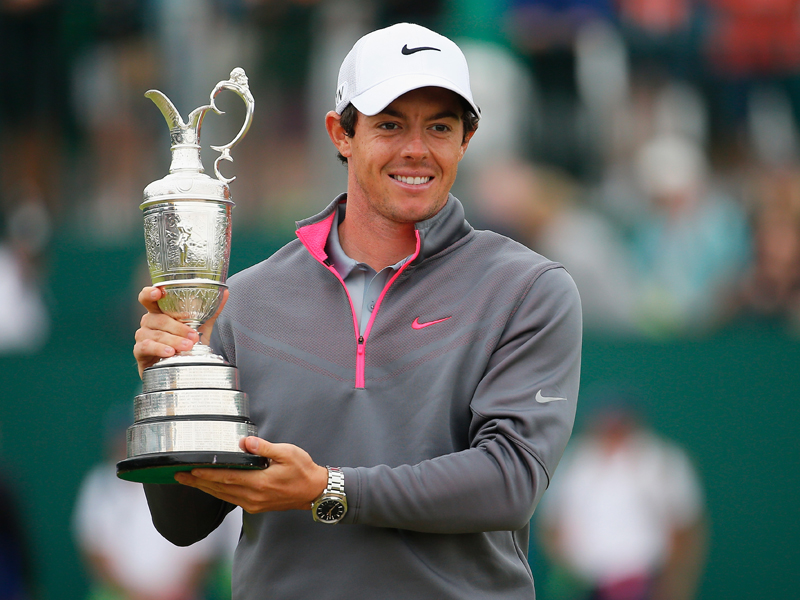

Rory McIlroy lost out to Lewis Hamilton at the BBC's Sports Personality of the Year awards
Most golf fans’ timelines were filled with exasperated and incredulous comments following the conclusion of the BBC’s Sports Personality of the Year.
Despite being 1/4 with some bookmakers prior to the ceremony, Rory McIlroy lost out by some distance to Lewis Hamilton.
Even the Formula 1 World Champion seemed perplexed by the decision during his acceptance speech, despite registering 86,175 more votes than the four-time Major Champion.
From an objective standpoint, McIlroy should have been the winner. There can be no question of that.
While Hamilton enjoyed a standout year, winning 11 races, he benefited from the best technological expertise and engineering, a superior car to his rivals and a huge team network.
McIlroy, meanwhile, won two Major Championships, both the PGA and European Tour Money Lists, the BMW PGA Championship, The WGC-Bridgestone invitational and played a starring role at the Ryder Cup.
Get the Golf Monthly Newsletter
Subscribe to the Golf Monthly newsletter to stay up to date with all the latest tour news, equipment news, reviews, head-to-heads and buyer’s guides from our team of experienced experts.
Hamilton defeated 21 other racers over the course of the season; McIlroy won more money than 297 players on the European Tour and 257 on the PGA Tour, and did so by some margin. In his two major wins, he defeated fields of 156 players.
Around the country, some sports writers watched in dismay as their pre-written pieces about McIlroy’s triumph became defunct.
Even the BBC published an article shortly afterwards with the title ‘Rory McIroy wins Sports Personality of the Year’ before swiftly replacing it with the correct story.
So, why didn’t McIlroy win?
In the popularity contest between the two sports, golf lost – perhaps a product of a lack of exposure on terrestrial channels, among other factors.
It must be said here that the BBC has showed scant resistance in allowing a host of key tournaments to move to Sky – an intelligible signal of its prioritisation of golf.
Sky, by contrast, has invested heavily in golf, worked tirelessly to produce the best possible offering and been lauded for doing so.
Elsewhere, F1 fans seemingly voted in their droves, while many of McIlroy's advocates conceded in the aftermath they hadn’t bothered to register.
Fundamentally, though, it seems as if non-golf fans didn’t recognise the magnitude of McIlroy’s achievements.
Instead of showing McIlroy chipping into a washing machine – a clip that seems to fit the BBC’s emphasis on entertainment over substance – surely it would have been better to attempt to convey to the general public and those with a limited understanding of professional golf how impressive his season was?
Indeed, only two golfers have won BBC Sports Personality of the Year in the past: Dai Rees in 1954 and Nick Faldo in 1989.
Even Tony Jacklin wasn’t recognised for becoming the first Brit to win the US Open in an era dominated by American golfers.
As long as Sports Personality of the Year remains a public vote and the BBC continues to allow glitz and glam to supersede actual sporting achievement, it looks likely to stay the same.
And where was Charley Hull, who, earlier that day, became the youngest ever golfer to win the Ladies European Tour Order of Merit?
What was encouraging, however, was the presence of golf across a number of different categories.
Paul McGinely rightly won the coach of the year accolade for his faultless captaincy of the European Ryder Cup team, which lost out to the England women’s world cup-winning rugby team in Team of the Year – another decision many were surprised by.
Elsewhere, Scottish amateur golfer Bradley Neil was shortlisted in the Young Sports Personality of the Year category for his victory in this year’s Amateur Championship.
Unfortunately, McIlroy’s second-place finish will overshadow what was otherwise a very positive night for the sport.
Sadly, golf is struggling to prick public consciousness – something not helped by a lack of prioritisation by the BBC, a lack of understanding by the general populace and, ultimately, limited popularity. Could it be the latter point is a direct result of the first two?
If an affable 25-year-old who’s reached the summit of the world game and enjoyed unprecedented success in one year can’t win the title, what hope do golfers have going forward?
Still, it’s been some time since golfers were represented in four categories, so there’s something to be cheerful about.
That won't provide much consolation to McIlroy, though.

Nick Bonfield joined Golf Monthly in 2012 after graduating from Exeter University and earning an NCTJ-accredited journalism diploma from News Associates in Wimbledon. He is responsible for managing production of the magazine, sub-editing, writing, commissioning and coordinating all features across print and online. Most of his online work is opinion-based and typically centres around the Majors and significant events in the global golfing calendar. Nick has been an avid golf fan since the age of ten and became obsessed with the professional game after watching Mike Weir and Shaun Micheel win The Masters and PGA Championship respectively in 2003. In his time with Golf Monthly, he's interviewed the likes of Rory McIlroy, Justin Rose, Jose Maria Olazabal, Henrik Stenson, Padraig Harrington, Lee Westwood and Billy Horschel and has ghost-written columns for Westwood, Wayne Riley, Matthew Southgate, Chris Wood and Eddie Pepperell. Nick is a 12-handicap golfer and his favourite courses include Old Head, Sunningdale New, Penha Longha, Valderrama and Bearwood Lakes. If you have a feature pitch for Nick, please email nick.bonfield@futurenet.com with 'Pitch' in the subject line. Nick is currently playing: Driver: TaylorMade M1 Fairway wood: TaylorMade RBZ Stage 2 Hybrid: Ping Crossover Irons (4-9): Nike Vapor Speed Wedges: Cleveland CBX Full Face, 56˚, Titleist Vokey SM4, 60˚ Putter: testing in progress! Ball: TaylorMade TP5x
-
 Volvo China Open 2025 Picks, Odds And Predictions
Volvo China Open 2025 Picks, Odds And PredictionsFollowing a break for The Masters, the DP World Tour returns for the final two weeks of its Asian Swing and the Volvo China Open is the penultimate event
By Jonny Leighfield
-
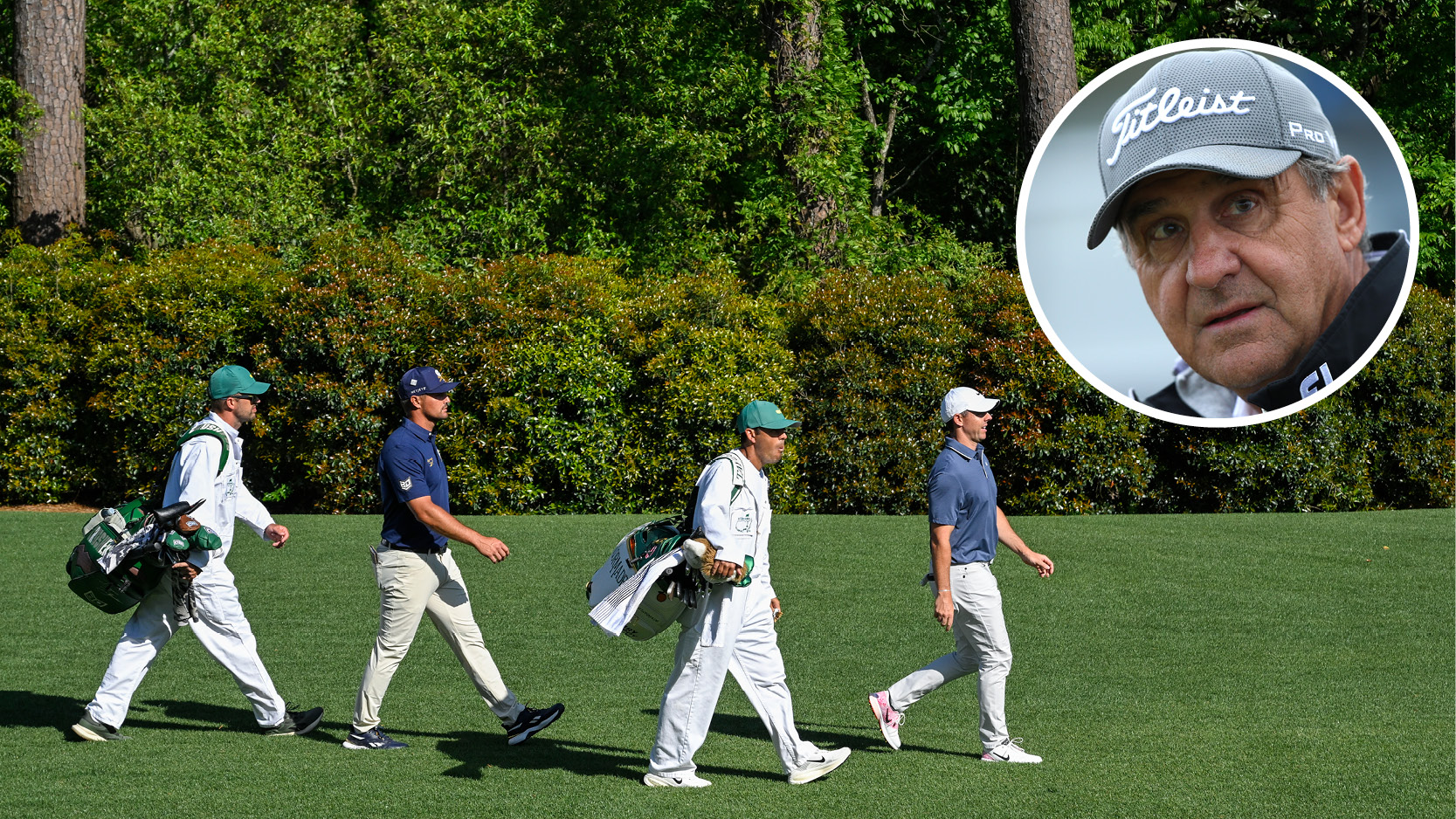 Rory McIlroy's Sports Psychologist Explains Why He 'Didn't Talk' To Bryson DeChambeau In Masters Final Round
Rory McIlroy's Sports Psychologist Explains Why He 'Didn't Talk' To Bryson DeChambeau In Masters Final RoundDeChambeau raised eyebrows at Augusta National when claiming that McIlroy wouldn't engage in conversation during the final round of The Masters
By Jonny Leighfield
-
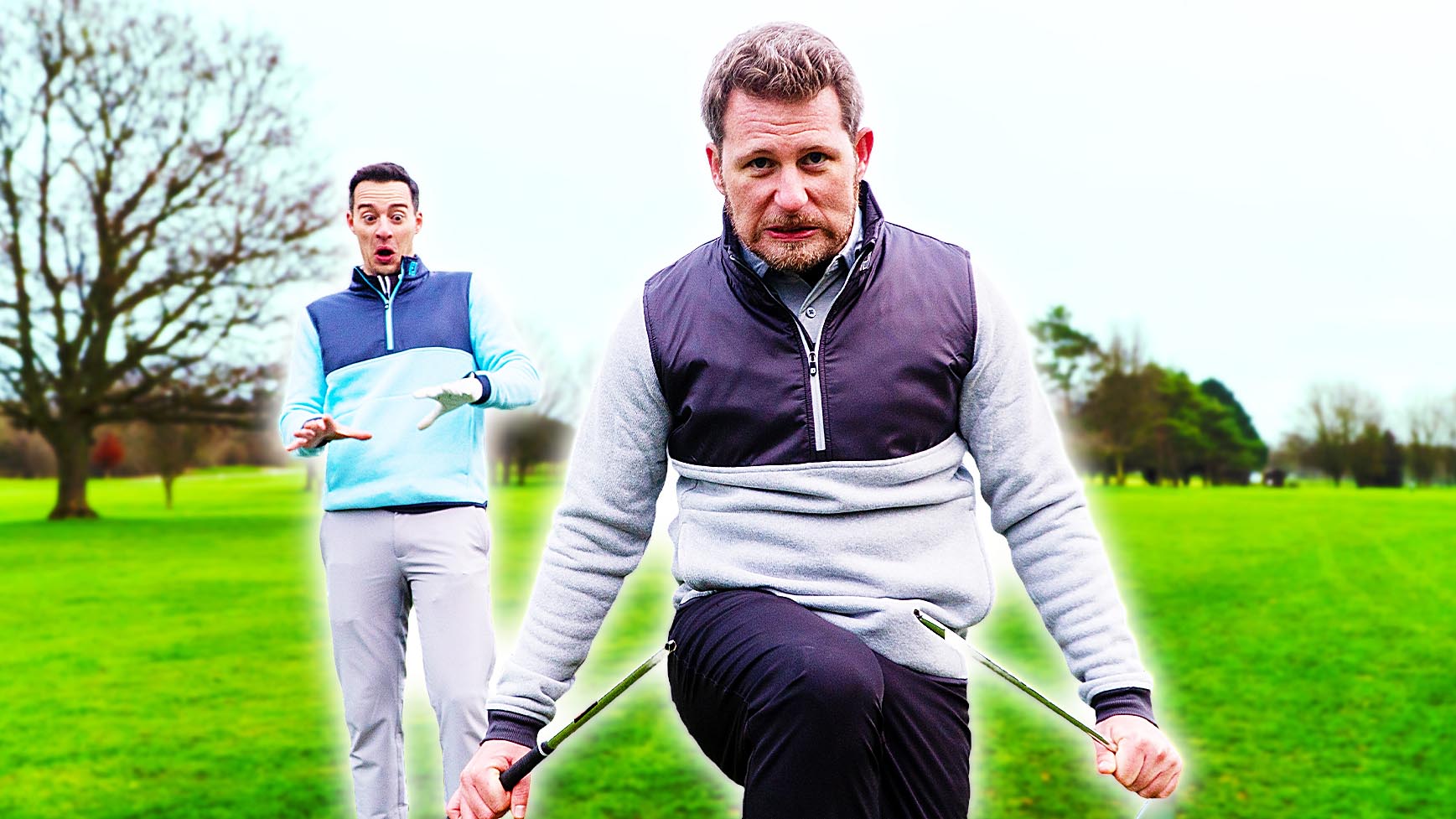 7 Most Annoying Golf Playing Partners
7 Most Annoying Golf Playing PartnersWe showcase the seven most annoying playing partners that golfers can have the misfortune of teeing it up with!
By Sam Tremlett
-
 How To Clean Golf Clubs And Grips
How To Clean Golf Clubs And GripsIf you want to know how to clean golf clubs and grips, check out this step-by-step guide
By Sam Tremlett
-
 In Praise Of Golfing In Winter
In Praise Of Golfing In WinterFergus Bisset on why he enjoys playing golf through the winter months
By Fergus Bisset
-
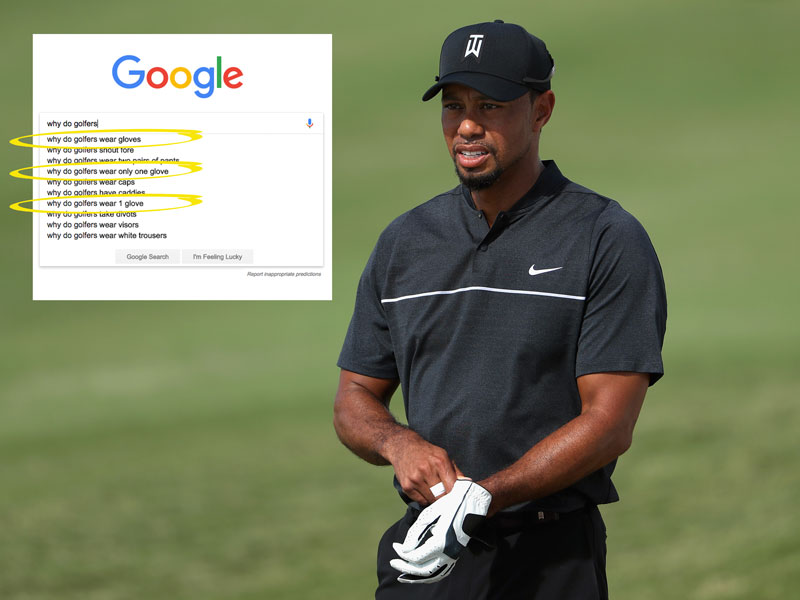 'Why Do Golfers Only Wear One Glove?' You Asked Google And We've Got The Answer...
'Why Do Golfers Only Wear One Glove?' You Asked Google And We've Got The Answer...You asked Google and we've got the answer...
By Roderick Easdale
-
 How To Regrip Golf Clubs
How To Regrip Golf ClubsKnowing how to regrip golf clubs means you can afford to replace them as and when they need replacing
By Joe Ferguson
-
 The 7 Scariest Shots in Golf
The 7 Scariest Shots in GolfWith Halloween creeping up, we have selected the 7 scariest shots in golf
By Neil Tappin
-
 17 Ways To Tell You're Obsessed With Golf
17 Ways To Tell You're Obsessed With GolfThe tell-tale signs that you are a true golf fanatic
By Roderick Easdale
-
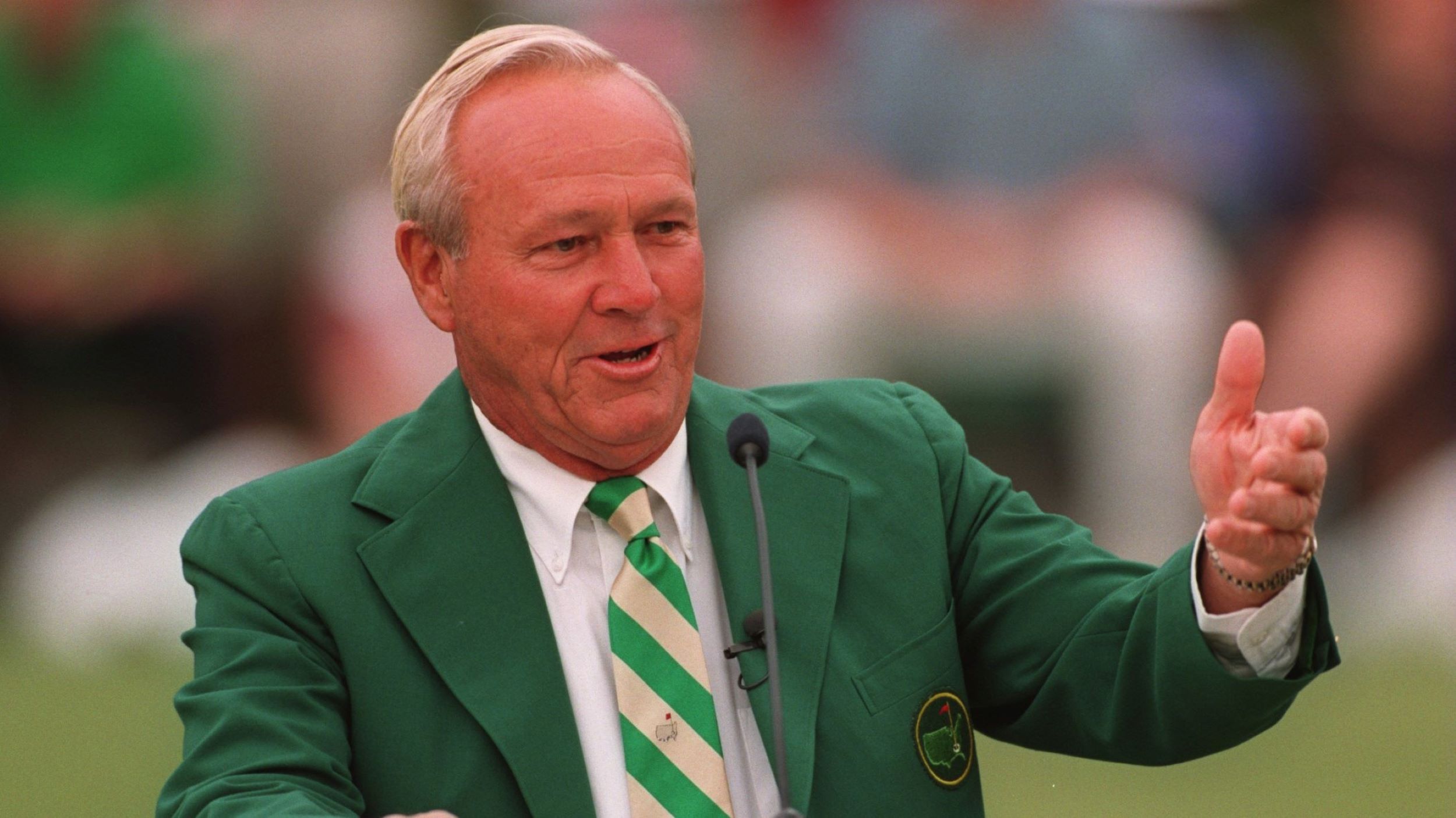 10 Of The Best Arnold Palmer Quotes
10 Of The Best Arnold Palmer QuotesHere we take a look at 10 of our favourite Arnold Palmer quotes
By Roderick Easdale